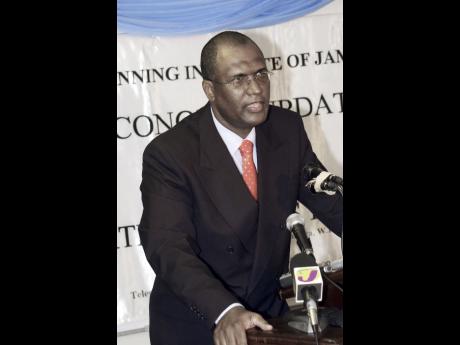Peter-John Gordon | Airport monopoly dangerous
Monopoly situations are often undesirable because the monopolist has very little incentive to lower cost (and hence price) or improve quality. Competition, on the other hand, puts pressure on a firm to lower prices (or at least restrict increases) and improve quality as failure to do so might result in the demise of the firm.
There are some situations, however, in which competition is not possible because the market cannot profitably accommodate more than one firm. Such situations are referred to as a natural monopoly. When this occurs, the Government either owns such a company, or allows a private entity to own it, but seeks to regulate that company to prevent it from exploiting its monopoly position.
Government ownership has associated with it a host of problems, including the lack of incentives to ensure proper management. The most popular way of dealing with natural monopolies now is to privatise and regulate. Regulation is a second-best attempt to force the firm to behave as if it were in a competitive environment.
The informational requirements of regulation are huge, and for that reasons it is infinitely more difficult than competition in getting a firm to behave in society's interest. So competition, where possible, is more desirable than regulation.
The Financial Gleaner of September 12, 2018, reported that "the Development Bank of Jamaica has chosen a Mexican firm for the Norman Manley International Airport (NMIA) concession ... .". There is absolutely nothing wrong in picking a Mexican firm or a firm, from anywhere else in the world, to operate NMIA. The disturbing part of The Gleaner's report occurs when continuing, it states, "which will serve to deepen its lock on the Jamaican market, and if the negotiations end in a deal, will have control of the two largest international airports".
If Kingston is seen as a separate market, the argument could be made that only one international airport is possible, i.e., we have a natural monopoly. Likewise, if Montego Bay is seen as a separate market, again, the argument could be made that Sangster International Airport (SIA) is a natural monopoly as no other international airport could be accommodated in Montego Bay.
These airports would be seen as operating in separate markets and not competing with each other. The only tool for control would, therefore, be regulation if they are to be operated by private entities. Who owns/operates these airports would be irrelevant. But are the NMIA and the SIA really operating in two separate and distinct markets?
I have, on multiple occasions, chosen to fly out of, and into, the SIA rather than NMIA, although SIA is more than 100 miles farther from my house and place of work than is NMIA. The reason why I have done this is because the fares out of SIA are considerably cheaper than those out of NMIA.
Maybe at one time the argument could be made that the airports served different clients. However, with the improved road network and the availability of an excellent bus service between Kingston and Montego Bay, more persons are choosing which of the airports to use.
I have travelled from Kingston to the SIA by bus and noticed that more than 90 per cent of the passengers on the bus were also heading to the SIA. It is clear that NMIA and SIA both operate in the same market. They compete for the same customers.
Having both airports operated by the same firm means that that firm is competing with itself. There is no real competition. Often, businesses seek patents very close to the process that they currently use. They have no intention of using the newly acquired patents but seek them nonetheless to prevent anyone else acquiring them. These patents are called sleeping patents.
This strategy is meant to thwart the competitive process. Is the acquisition of the right to operate NMIA by the operators of the SIA meant to thwart competition between both airports? Whether this is the intent or not, it puts the single operator in a position to develop one and ignore the other since it is now a monopoly operator that could do just enough to satisfy the regulator but not as much as a true competitive process would dictate.
Does this arrangement ensure that prices into and out of the NMIA will continue to be significantly higher than those out of SIA?
Policymakers ought to rethink the proposed arrangements or tell the country why the benefits of this arrangement would outweigh the potential harm that it can cause.
- Peter-John Gordon is a lecturer in the Department of Economics, UWI. Email feedback to columns@gleanerjm.com and pjmgordon@hotmail.com.


